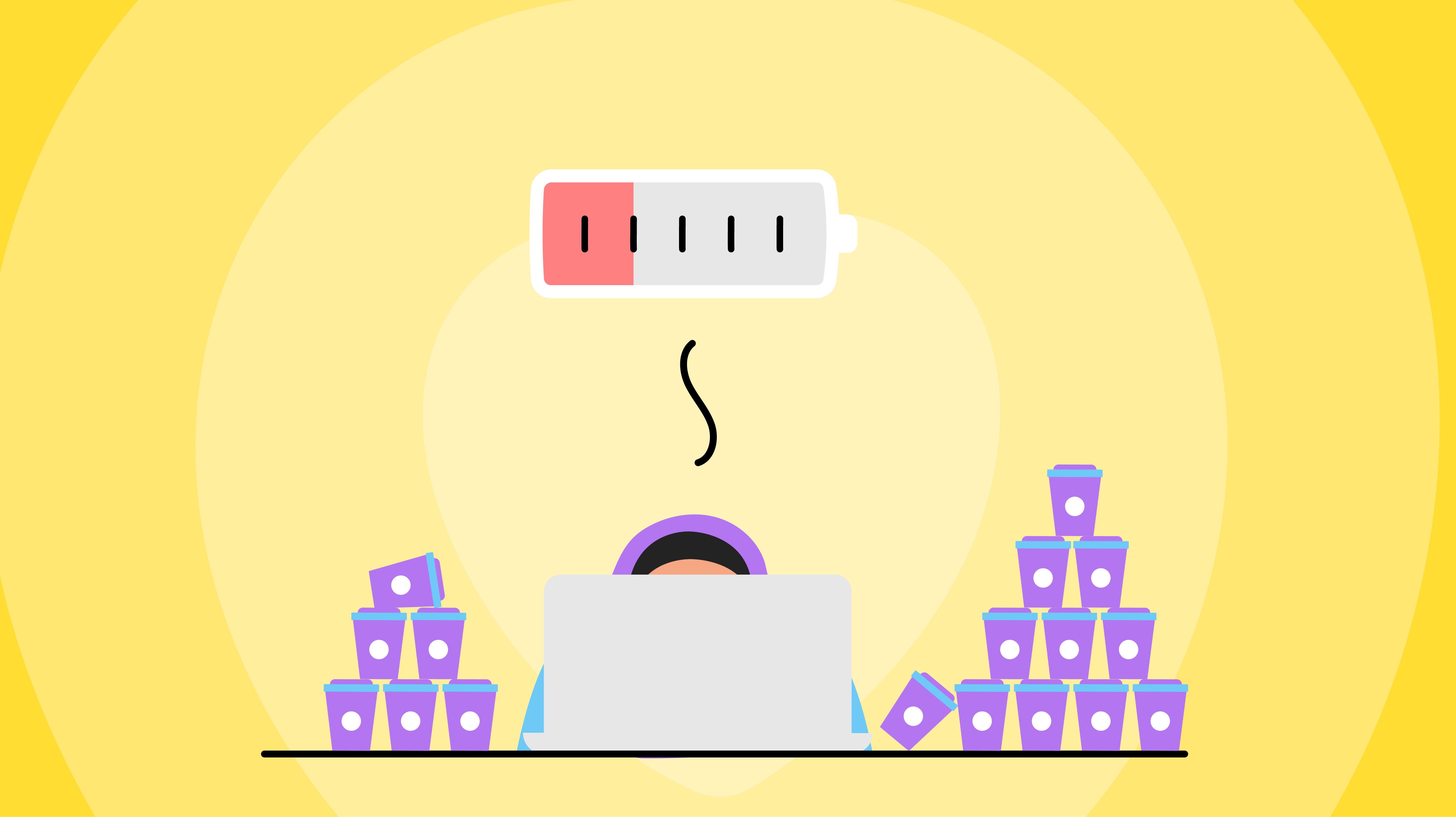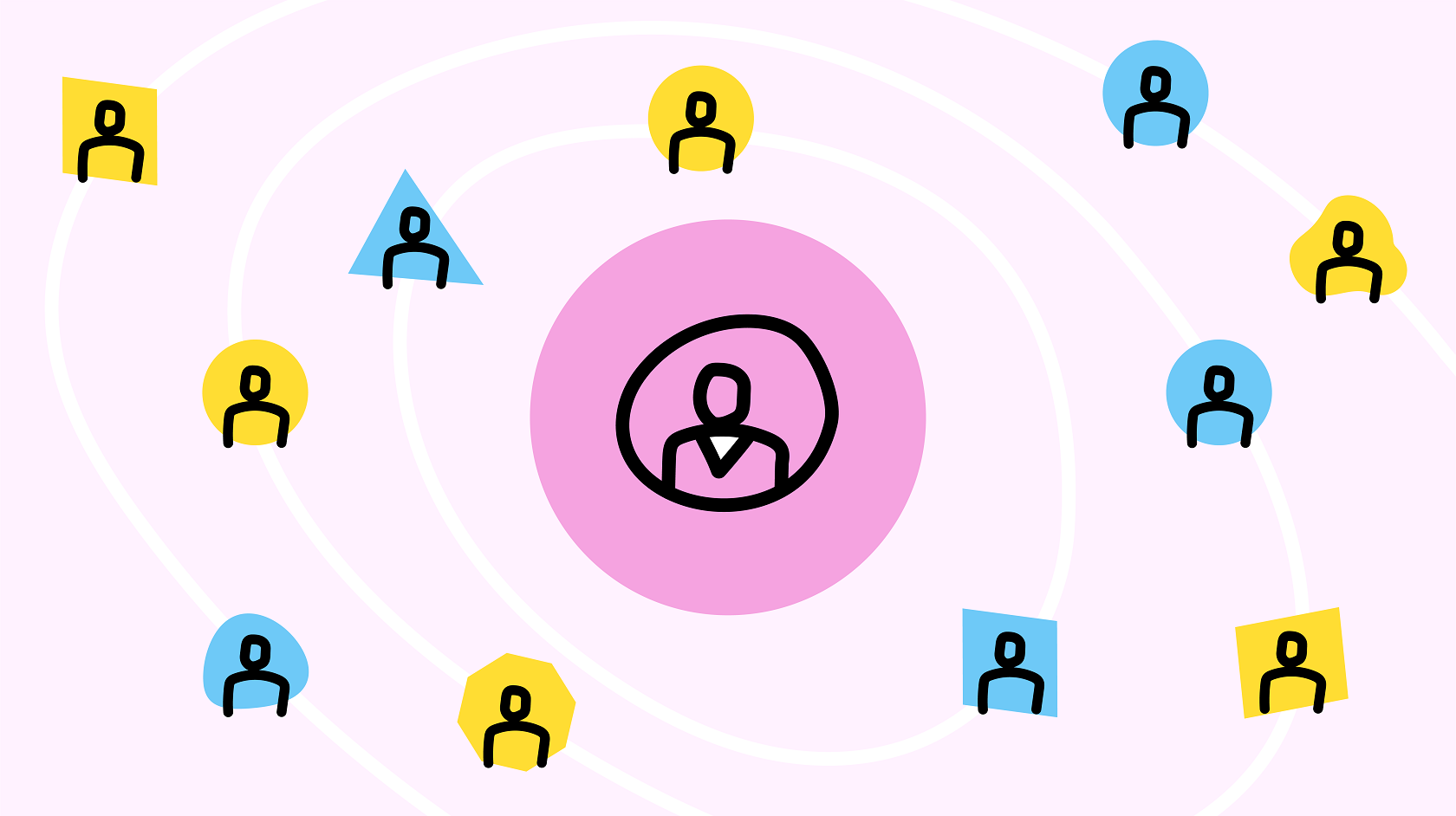By Faye Wai
7 min read

“Do what you love, and you’ll never work another day in your life.”
You’ve likely heard of this saying, but how much of this is true? Should we all quit our jobs in search of one that makes us thoroughly delighted, proud, and brings us pure joy?
First things first: you’re lucky if you love your job. In my experience, most people don’t. Familiar with the “TGIF” sigh of relief? On Sundays, many are already complaining that they have to get up for work the next day, or they’re already craving the weekend the moment they start their workday on Monday morning. I’m sure you understand that sentiment—if not, you probably know several people I’m talking about.
And the statistics back it up. Gallup’s global poll revealed that out of the world's one billion full-time workers, only 15% of people are engaged at work. That means that an overwhelming amount of people don’t feel passionate, committed, and even struggle to put in the effort at work. We can assume that these people don't feel very positive about their jobs.
People tolerate their jobs for many reasons, like security, routine, or just a way to support their lifestyle. Apathy and meaningless work can lead to burnout and demotivation. It can also lead to performance issues that hinder career advancement. You’ve also probably heard about that story of the grandpa regretting not following his passion on his deathbed.
But is it really all sunshine and rainbows once you get to love your job? Let’s examine whether or not life becomes one gigantic, carefree vacation once you’ve secured that. Or if the perfect utopia of job love is even possible in the first place.
Let’s say you’re the rare unicorn who happens to enjoy going to work every day. It’s fantastic, isn’t it?

Overall, job satisfaction is positively correlated with higher retention. Having work you enjoy makes you more resilient when it comes to overcoming situational difficulties on the job. A fussy boss? A longer commute? If your work is engaging, you might be more tolerant towards unappealing factors of the job (and your breaking point is harder to reach).
Purpose-driven frameworks such as the Maslow Hierarchy of Needs and Ikigai all point towards working on something that drives impact or fulfillment in your life. You’ll also find it easier to achieve the state of flow, meaning you’re entirely focused, inspired and can let ideas flow freely.
I mean, this one is pretty much self-explanatory, right? You find it easier to wake up, conquer that long commute, and show up as your best self. It’s easier to invest time and energy at work, and the tasks feel less draining. The average person spends up to a third of their waking hours at work—that’s a BIG chunk of life. When you spend a significant amount of your life doing something you enjoy, it brings you positivity and fulfillment.
Let me be the first one to say this: loving your work can be tiring! Even though it may bring you tremendous pleasure, there are also risks associated with loving what you do. Here are a few:
Purposeful work is great, but when you’re focused on delivering impact, you might be tempted to put in 80-hour work weeks. Liking a job doesn’t mean you’re immune to being exhausted from its demands. When you become overly attached to your work, it’s hard to take breaks.
Mentally, this is true as well. Feeling like you’re not doing enough is a common emotion when you’re devoted to the work you’re doing. You’re also more prone to being let down and feeling disappointed when things don’t turn out as you planned. Chances are, you’ll feel especially demotivated if you lose traction and miss specific goals due to the high expectations you put on yourself.

“You’re so lucky you have this creative job! It’s like a hobby. I’d do that for free.”
Does this mean that whoever’s doing this “fun” work—be it painting, videography, or make-up—shouldn’t be paid for the work they’re doing?
When you’ve identified that you love your job, you’re also more likely to accept subpar situations, such as tolerating an abusive boss or a toxic culture. Ever bargained with yourself when things are “too good to be true”? Because your passion shines through, you might miss out on opportunities as you’re less likely to negotiate for more. Or you find that you're fine with accepting a less attractive compensation package just because the job nature aligns with your interests and passions. In mission-heavy industries such as the non-profit sector, it's common for employees to face gaslighting when they raise complaints.
You’re prepping for your meetings in your dreams. You’re reviewing a document at 11 pm. If your girlfriend is constantly voicing out how much you’re neglecting her, chances are you might be a little obsessed and working too hard out of passion. Entrepreneurs and leaders are most prone to a lack of work-life balance, especially if they have a stake in company shares and are invested or responsible for its performance. They’re almost always thinking of work, like an unhealthy addiction.
As you probably can already tell, whether loving your job makes things easier is a very personal matter. Here’s what we have to objectively bear in mind.
There’s no such thing as a perfect job: Yup, you heard right. The idea that you're supposed to love your job can be very damaging; because no one loves 100% of their career, 100% of the time. As much as you’re grateful, passionate, and thrilled about the position you hold, there are still going to be menial assignments, admin frustrations, and potentially conflicting personalities at play.
Work isn’t all play: There’s an inherent problem with treating work as play. You can still feel like you’re working even if you love the work. Looping back to the first quote in this article, even if you’re a full-time pet photographer or a costume designer, you’re probably in it because you can make a living out of it. That means you’re seeking reward and a transactional value on top of pure entertainment or pleasure.
Passions aren’t always that attainable, and they change: I mean, who wouldn’t want to travel around the world for a living? There are many pros to choosing an exciting job that stemmed from a hobby, but be sure to consider that passions can grow and change over time.
By all means, enjoy what you do. We’re all about living in the moment, aren’t we? Just don’t be caught by surprise if one day, you start feeling differently about what you do or that you’re less inclined to jump out of bed for another day of 9-5. What you’re working on may only fulfill you for a few years, and you could find yourself ready for something else before you realize it.

It’s all about your life’s focus and priority: What if you suddenly lost this job that’s so integral to your happiness? This is a profound reason to maintain other aspects of your life. When you fall out of love with your job, but put absolutely every single ounce of your focus and energy into it...what happens?
Like a lot of folks, a job isn’t necessarily about pure happiness. There’s spending time with family, buying a house, and other hobbies to sustain. Feeling fulfilled at work doesn’t necessarily pay the bills, mortgage, or send the children to college. Sometimes you just have to think about what you need to feel satisfied with your life as a whole and find a job that provides and puts all those pieces together. Our identity isn’t our careers, and it’s difficult to remember that when you’re eagerly engaged in it.
One thing’s for sure: it certainly is easier to overcome challenges when we’re driven by passion. Even though the work may be difficult, if you love it, the sense of accomplishment and satisfaction you experience is naturally greater. But that’s not the only thing—you’ll feel everything more intensely. The wins will be sweeter; the challenges will get you more fired up. You’re willing to go the extra mile to produce the best results.
But does loving your job make everything easier? It just depends on who you are and what you’re driven by. If you love buying things, you might not have to adore what you do for a living, but you do have to earn a decent amount of money. If you’re a single parent, well, you’re probably focused on having a flexible schedule to spend quality time with your tiny humans.
We’re all different. That’s why we shouldn’t blindly chase a job we love but rather look to self-awareness for answers about career trade-offs and the lifestyle we seek. If you take away one thing from this article, it’s probably this: it’s perfectly normal to love your job and at the same time, recognize that it’s hard work. Give yourself grace and balance when times get tough—but if you love your job, remember to be thankful that you do.

Read more by
Faye Wai
Jostle’s employee success platform is where everyone connects, communicates, and celebrates at work. Find out more at jostle.me. © 2009–2026 Jostle Corporation. All rights reserved.